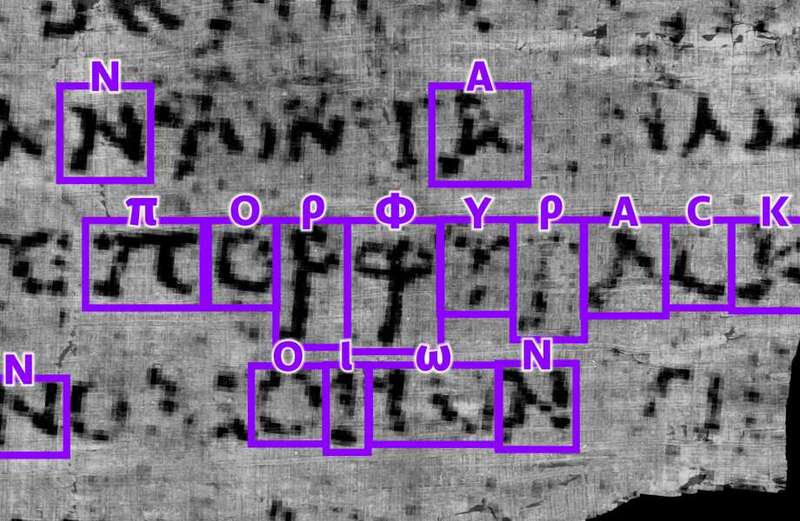RESEARCHERS have used artificial intelligence to help them decipher a 2,000-year-old scroll unearthed from the ashes of Mount Vesuvius.
Pompeii's Mount Vesuvius erupted in 79CE, burying a library of scrolls under volcanic ash where the messages inside have remained a secret.



The rolled-up papyrus was excavated from the ancient Roman city of Herculaneum in the 18th Century.
They are believed to have been stored in an enormous villa, once owed by the father-in-law of Julis Caesar.
Each scroll is incredibly damaged and delicate, and therefore, rather difficult to open - let alone read.
 Late Pope lies in state at Vatican as thousands queue to pay respects
Late Pope lies in state at Vatican as thousands queue to pay respects
The Vesuvius Challenge was launched by scholars from the University of Kentucky in March with the aim to make their decoding a global effort.
The Challenge offered up thousands of X-ray images of charred Herculaneum scrolls for anyone to have a stab at decoding.
Researchers and AI experts can bag $700,000 (£575,000) if they are the first team to read at least four separate passages in the scrolls by December 31st.
Any submissions are reviewed by a team of developers and papyrologists for legitimacy and plausibility.
Two students have emerged as the first to decipher a word in one of the scrolls.
Luke Farritor, a computer science student at the University of Nebraska-Lincoln, and Youssef Nader, a biorobotics grad student at the Free University of Berlin in Germany stumbled across the same discover separately.
The first word has been revealed to be: "πορϕυρας".
This means "porphyras" using modern Greek characters, otherwise known in English as "purple".
The rest of the scroll remains a mystery.
In ancient Rome, purple often represented wealth and status.
 Gladiator blockbuster sequel finally confirmed 23 years after original
Gladiator blockbuster sequel finally confirmed 23 years after original
It is thought the word could refer to robes or to rank.
However, further analysis of the scrolls will be needed to know for sure.



































